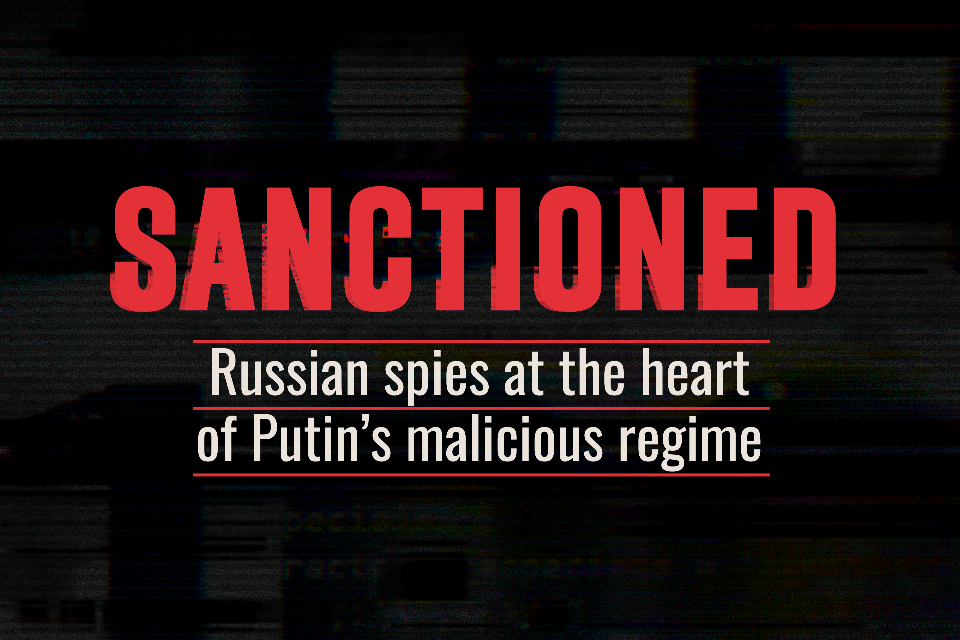UK Imposes Sanctions on Russian Spies Amid Escalating Cyber Threats

The United Kingdom has announced sanctions against over 20 Russian spies, hackers, and agencies in response to a sustained campaign of malicious cyber activity. The announcement, made on Friday, July 18, 2025, targets three units of Russia's military intelligence agency (GRU): Unit 26165, Unit 29155, and Unit 74455, along with 18 individual military intelligence officers.
The sanctions come as the National Cyber Security Centre (NCSC), part of GCHQ, formally attributed a sophisticated malware, dubbed "AUTHENTIC ANTICS," to APT 28 (also known as Fancy Bear, Forest Blizzard, and Blue Delta), which is part of Russia's GRU Unit 26165. This malware is designed to harvest login credentials from Microsoft cloud accounts and exfiltrate data. The UK's actions were announced on the same day the EU approved its 18th sanctions package against Russia over the war in Ukraine. NATO also issued a statement condemning Russia's destabilizing hybrid activities, expressing solidarity with the UK and other allies. New Zealand's Foreign Minister Winston Peters publicly backed the UK sanctions.
"AUTHENTIC ANTICS" Malware and APT 28's Cyber Espionage

The "AUTHENTIC ANTICS" malware, attributed to APT 28, highlights the sophisticated cyber capabilities employed by Russian intelligence. This malware targets Microsoft cloud accounts, stealing login credentials and exfiltrating sensitive data. The NCSC's attribution underscores the ongoing efforts to identify and expose Russian cyber operations.
Timeline of Russian Cyber Aggression

The recent sanctions are a culmination of years of alleged malicious cyber activity by Russian intelligence agencies. The following timeline highlights key events and incidents:
- July 18, 2025: UK announces new sanctions against GRU units and officers.
- 2023: The "AUTHENTIC ANTICS" malware was discovered after a cyber incident investigated by Microsoft and NCSC-assured providers.
- 2022: Unit 26165 conducted online reconnaissance to help target missile strikes against Mariupol, including the bombing of the Mariupol Theatre. Russian cyber operations also targeted critical infrastructure like Viasat satellite communications on the eve of the full-scale invasion of Ukraine.
- 2018: GRU military intelligence officers were involved in the attempted murder of former Russian spy Sergei Skripal and his daughter Yulia with the Novichok nerve agent in Salisbury. Officers from Unit 26165 had previously targeted Yulia Skripal's device with X-Agent malware. Unit 74455 also attempted to disrupt investigations into the attack on the Skripals through cyber intrusions on the British foreign ministry.
- 2017: Unit 26165 was likely behind the hack on Emmanuel Macron's presidential campaign.
- 2016: Unit 26165 was likely behind the hack on the U.S. Democratic National Committee (DNC) and Democratic Congressional Campaign Committee.
- 2015: Unit 26165 carried out data hacks on the German Bundestag.
Key Stakeholders Involved

The situation involves a complex web of stakeholders, each with their own interests and roles:
- United Kingdom Government: The Foreign, Commonwealth & Development Office (FCDO), National Cyber Security Centre (NCSC), GCHQ, and MI5 are at the forefront of identifying, investigating, and responding to Russian cyber threats.
- Russian Military Intelligence (GRU): Specifically, Unit 26165 (also known as APT 28, Fancy Bear, Forest Blizard, Blue Delta), Unit 29155, and Unit 74455 (also known as Sandworm), and their officers, are the primary actors behind the alleged malicious cyber activities.
- Ukraine: A primary target of Russian cyber and information operations, including critical infrastructure and civilian areas like the Mariupol Theatre.
- European Union (EU) and NATO: Allies who have issued statements condemning Russia's activities and are also implementing their own sanctions and defense strategies against Russian malign influence.
- United States, Germany, France, New Zealand: Other international allies who have been targeted by Russian cyber activity or are collaborating in countering these threats.
Statements from Key Figures

The UK government officials have made strong statements condemning Russia's actions:
- Foreign Secretary David Lammy stated, "GRU spies are running a campaign to destabilise Europe, undermine Ukraine's sovereignty and threaten the safety of British citizens. The Kremlin should be in no doubt: we see what they are trying to do in the shadows and we won't tolerate it. That's why we're taking decisive action with sanctions against Russian spies."
- NCSC Director of Operations Paul Chichester commented, "The use of AUTHENTIC ANTICS malware demonstrates the persistence and sophistication of the cyber threat posed by Russia's GRU."
- The Foreign Office reported that Russia has targeted media outlets, telecoms providers, political and democratic institutions, and energy infrastructure in the UK.
International Condemnation and Support for Sanctions

The UK's sanctions have garnered international support. NATO has condemned Russia's destabilizing hybrid activities, and the EU has approved its 18th sanctions package against Russia. New Zealand's Foreign Minister Winston Peters has also publicly backed the UK's actions, highlighting the global concern over Russian cyber aggression and hybrid warfare tactics.
Russian Response and Potential Consequences
Russia has consistently denied any involvement in malicious cyber activities, dismissing accusations as politically motivated. Former Russian President Dmitry Medvedev stated Russia's economy would survive sanctions and that Moscow would continue striking Ukraine. The sanctions, which involve asset freezes and travel bans, aim to increase the cost for individuals involved in these activities and raise awareness of Russia's campaign. The NCSC emphasizes the need for continued monitoring and protective action by network defenders, underscoring the persistent and sophisticated nature of the GRU's cyber threat. The UK's actions are part of a broader international effort to counter Russian hybrid threats.